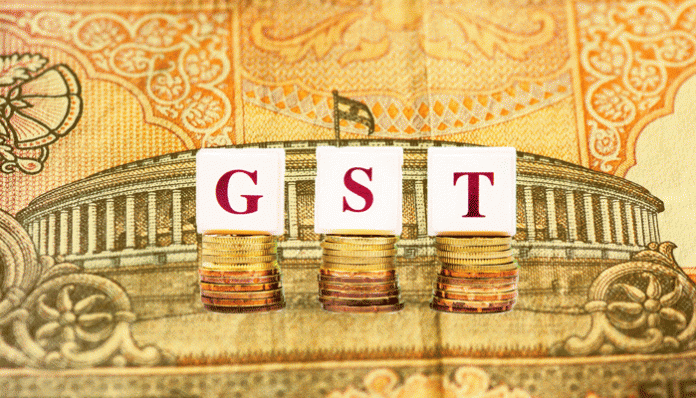TRENDING TAGS :
Opposition boycott of GST function was an opportunity missed
 Yogesh Mishra
Yogesh Mishra
At midnight hour on August 15,1947, we had a tryst with destiny and the people in the country woke up next morning to freedom. There were many unanswered questions then. There are some unanswered million dollar questions even now after rolling out of Goods and Services Tax or GST which the Prime Minister Narendra Modi described as " Goods and Simple Tax " at zero hour on Friday.
Like him there are many in the country who feel elated and call the historic development the second " Azadi". Their chant is: the country, after freeing itself from the Britishers, has achieved ,with introduction of GST, economic freedom -- freedom from tax terror and inspector Raj.
On the other side, however, there are men and women who are highly critical of the new reform measure and have threatened to bring trade to a halt across the country. Their intention does not seem to be good-- certainly not in favour of the majority.
The government launched this reform measure to end tax evasion, benefit consumers and bring in greater transparency in business. The aim is certainly laudable. But, unfortunately for all us, even schemes which are good for the general people and have received appreciation from people outside the nation, do not receive a good response from this section.
This is not the first time that attempt is being made to thwart a good move. Last year when the Modi government had asked jewelers to keep a detailed account of purchases and note down pan number etecetera to prevent tax evasion, traders went on strike which lasted 45 days. There was nothing wrong with it and a genuine trader could have nothing against the move. But they could not listen.
What is more. any measure that is taken to end malpractices and bring in sanity is opposed by a section. Rumours are spread to turn innocent people against the measure.The same things seems to be happening in case of the GST. It has merged central and state excise duties, VAT and other taxes into one tax ( GST) and the country will collect more revenue and expedite growth due to this measure. A large number of goods have been made non-taxable, rates have bee brought down on many other items but all this is far from pleasing to them. Seventeen taxes and 23 cesses were applicable in the country. Now, there will be one cess , that too, of a lower level ( three per cent ).
The aim is make business-- purchase and sale -- transparent and prevent tax evasion. The filing of return too has been made simple and easy. Small traders whose annual turn - over is less than Rs 20,000 ( Rs ten lakhs in special category states) do not have to file a return. They have been kept out. But all kinds of rumours have been spread including the one that it will put additional burden on the traders.
ALSO READ:
Former FM Chidambaram attacks GST, says it will lead to inflation
GST 2017: Know how much tax will be levied on Goods and Services
More than 80 per cent goods and services are either tax free or will demand less than eighteen per cent tax. On some of the items the tax and cess was as high as 40 per cent. Stay in hotels with room charge as Rs 7,500 per day is tax free. Only stay in five star hotels will be little costlier. Common men and those in a little higher income category, therefore, are unaffected.
Look at some other plus point. Medical treatment,education, petrol and diesel used by general people will not attract GST. Essential goods are in the same bracket. What else can be more people friendly?
Though the Congress takes much credit for the scheme but the idea was conceived way back on 1999-2000 when Atal Bihari Vajpayee was at the held of affairs in the country. His government at the Centre had discussed it with former RBI governors I G Patel, Bimal Jalan and C Rangarajan. A committee under the chairmanship of West Bengal finance minister Ashim Das Gupta was constituted to study the proposal and prepare a road-map.
The Vajpayee government was replaced later by Manmohan Singh but Gupta was not removed. He himself resigned after working on the project for seven years. Two more persons headed the committee. Present finance minister Arun Jailtey appointed Amit Mitra as the last chairman. He belongs to the Trinamool Congress and is finance minister in the party government, The irony is that though the Modi government entrusted a major work to the TMC man, the party boycott the function held for launching the scheme.
The Congress, the main opposition, has also behaved strangely. The party tried to push the GST when it was in power. President Pranab Mukherjee who was the finance minister then had also set a deadline-- April 2011. But when the project was ready for the launch the party leaders were no where to be seen. They missed a great opportunity and sent a wrong signal to the people.
Prime Minister Modi's role is appeciable. For, instead of taking credit himself or giving it to his government, he gave it to every one including the Congress. Everybody whether in the opposition or the government worked unitedly to make it a success story, he told the people who had assembled to witness the launch.
The GST is an example of collective federalism. After some teething trouble it will be become a new trade guide or Bible for genuine traders. The critics will also realise it later. But it will be too late then. History will remember them too. But for a wrong reason.
(The writer is a seasoned journalist)



